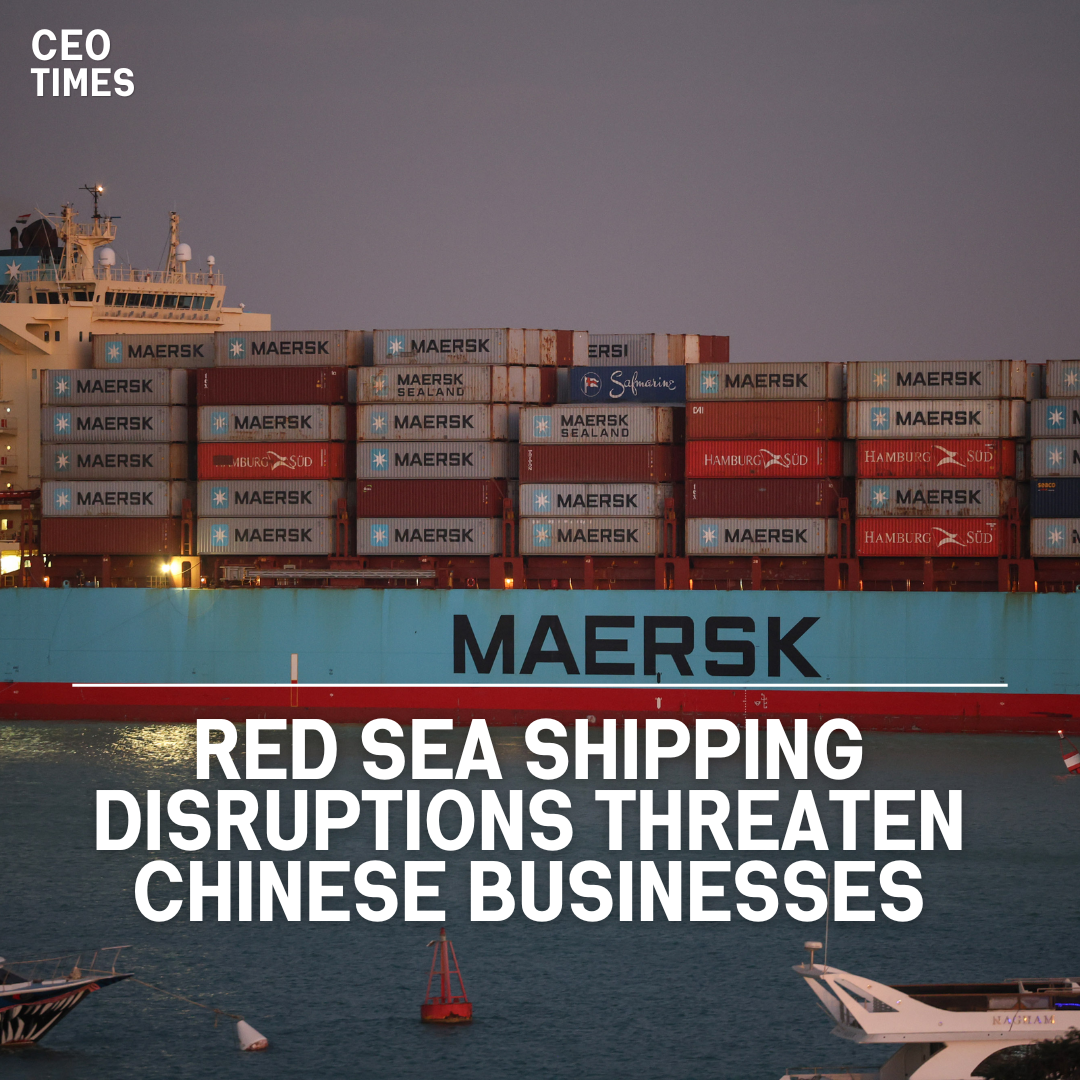Chinese businesses, particularly those in the eastern province of Fujian, are grappling with disruptions to Red Sea freight, significantly impacting supply chains and export operations.
Shipping costs have surged, leading to higher expenses and thinner profit margins for traders. The vulnerability of China’s export-reliant economy to external shocks and supply snarls has been exposed, prompting concerns about the potential reevaluation of global supply chain strategies.
Global Supply Chains Face Strain as Red Sea Shipping Route Hit:
The escalation of attacks on shipping in the Red Sea, particularly by Yemen’s Houthi movement, has resulted in shipping route disruptions.
This has led to a surge in shipping costs, doubling container expenses quickly. The impact is not limited to increased costs; it also includes delays in shipping times, affecting businesses that rely heavily on the Red Sea route for trade with Europe and Africa.
Potential Shifts in Production Strategies and Impact:
Some companies, such as BDI Furniture, are already exploring alternative production locations, including Turkey and Vietnam, to mitigate the effects of Red Sea disruptions.
This has raised concerns about a potential shift in global production strategies, with companies considering “near-shoring” and reevaluating reliance on China.
Further disruptions to the Red Sea route could exacerbate challenges for China’s economy, which is already dealing with various economic issues.
Please for Cost-Sharing as Businesses Navigate Added Challenges:
Chinese businesses, such as Fuzhou Han Changming International Trade Co Ltd, face financial strain due to increased shipping costs.
Some companies are pleading with suppliers and customers to share the additional expenses to help them navigate the challenging economic landscape.
The disruptions coincide with the Lunar New Year logistics challenge, adding complexity to a strained business situation.
Global Implications of Red Sea Shipping Delays:
The Red Sea disruptions are affecting Chinese businesses and creating a ripple effect globally.
Shipping delays are prompting European customers to halt shipments, impacting companies in China and the supply chain.
Concerns about potential delays in goods reaching Western shelves in the coming months are growing, and logistics companies are already reporting container shortages at key ports, affecting global container capacity.




















